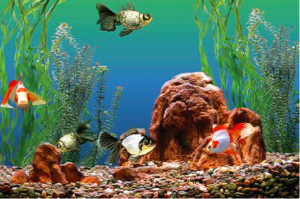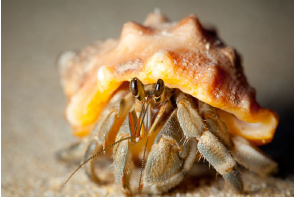Small living spaces and pets don’t usually mix, but animal lovers don’t see it that way.
Small pets are usually the answer, a cute compromise for people wanting to share their tiny abodes with their favorite animals without running afoul of housing restrictions or
offending neighbors who might object to pets.
Some responsible (and resourceful) pet owners can sometimes squeeze in one (or even two) large pets as long as they can train these to be peaceful, calm, and friendly, and keep the animals clean.
Around the city, a number of condominiums even make pets a selling point to attract people who are looking for pet-friendly residences. In Makati, for example, more high-rise
condominium allow pets to live with residents, and guests to bring theirs.
These places usually have rules governing pet ownership such as cleaning up after the pets, especially in public areas; keeping pets on a leash or in a cage at all times when
being taken out of their owners’ residences; requiring owners to keep their animals from making too much noise; and keeping the animals clean at all times and not leaving them
unattended.
Some residential establishments also require unit owners or tenants to register their pets with the homeowner’s association. They sometimes also require that pets, though these will be kept indoors most of the time, be kept up to date with the vaccine and anti-rabies shots, both for their good and for everyone’s safety.
So which animals are the most popular among owners who live in small spaces?
Dogs and Cats
Dogs and cats are the most common household pets in the country, whether among those living in their own houses or in smaller spaces like condominiums and apartments.
Dogs are intelligent, and it’s easy to train them to be friendly, obedient, and sensitive to the needs of their owners and other people. These qualities make small and medium-sized dogs perfect apartment pets. Of course, breeds like the Chihuahua, Pomeranian, and Shih-Tzu are easier to care for in small living areas; on the other hand, while it is possible to keep a Siberian Husky, Chow-Chow, Golden Retriever, or Labrador in a condominium or similar space, it can be a challenge necessitating that their owners be very responsible about cleaning up after them and exercising them.

Aside from being a creature to to pet and cuddle, dogs also provide another layer of home security that even small living quarters need, and even the small ones can be intimidating to intruders and other hostile persons under the right circumstances.
The trick really is to teach the dog to be calm and non-threatening so that they can co-exist peacefully with other people and animals. Because dogs need their daily walks and exercise, find a time that suits your schedule to do this, preferably when there
are fewer people outside.
While inside the house, keep the dog preoccupied so they don’t get bored. Dogs can watch shows on TV or play with their toys. It’s also ideal to keep their minds busy by letting them look out a window. Also, make sure that they have fresh water all the time and a designated place to relive themselves indoors so they don’t get stressed, especially when you are not around.Cats can be kept as pets, not only because they are small, but they can also adapt easily to their surroundings and can be left alone for several hours in a day. Different cat breeds are recommended, depending on your preference.
If you are a busy person, a rescued cat tends to be more independent and to need less attention; as for cat breeds, British Shorthairs are recommended for the same reason. Cats are easier to keep indoors, but they do have their own quirks. Cats love action so make sure you provide them an area where they can play and exhaust themselves, like a ladder or a lofty ledge from which they could jump or run up and down. They also need to be given something to scratch for their claws; a humble cardboard box can do the job just as well as a scratching post.Cats can also use some TV time.
Because cats tend to eat small but frequent meals, it’s a good idea to keep their food dishes half-filled so they can eat whenever they want to even when you’re not home. Also, make sure their litter box is always clean and fresh so they don’t track dirt around or worse, soil the carpet, sofa, or other inappropriate places. Giving them their own beds is also a good idea. Cats tend to sleep a lot–certainly more than dogs do–so they shouldn’t really be much of a bother to keep inside a small apartment as long as you stay sensitive to their needs.
Birds and Fish
Pet birds can be a good choice for apartment living. One clear advantage of pet birds is their small size and and the fact that many of them are content in a comfortably-sized cage. However, keep in mind that birds fly, chatter, and sing. Dogs and cats are easier to shush than birds, so you might want to consider picking a bird pet that doesn’t tend to “talk” or sing much. You should consider that not all your neighbors may appreciate hearing bird sounds over extended periods of time, so a quieter bird species is recommended if you are living in a small apartment.

Do you want to bring the world of water to your small space? An aquarium is the answer, but it is important for you to choose wisely what type of fish to keep–especially if you have a busy lifestyle. Avoid high-maintenance or exotic fish varieties that might be too expensive to feed (especially if they require live prey) and harder to keep healthy in the long run. Fish make great companions, as watching them swim can help you de-stress. Just make sure that if you have cats, you have measures in place to prevent them from playing with or killing the fish.
Crabs and Turtles
If you want a pet that is really small, consider a hermit crab, which can travel in the palm of your hand. In addition to food and water, one need only provide them a clean aquarium with spare shells and things to climb on. Hermit crabs are social animals that are fond of being in groups and are active at night. You could say they are true party animals! They are also quite docile and rarely trigger allergic reactions. Did you know that hermit crabs can chirp or croak? They usually make this sound when fighting another crab over an empty shell. Their life expectancy is about a decade, so you are looking at a long-term relationship if you decide to keep one.

Throughout their life, hermit crabs will change shells, molt several times, and grow up to at least six inches in length. But experts said that in captivity, what they will not do is reproduce, even though some females may lay eggs.
If turtles are what you want, bear in mind that while they are sold commercially, the sale of the small ones that are less than four inches long is actually considered illegal.
Baby turtles up six inches long are normally kept as pets in glass tanks with ponds. If you are thinking of keeping baby turtles in your apartment, at least house them in a tank that is 4’/120 centimeters or cm long, 18”/45 cm wide, and 18”/45 cm tall with a pond, appropriate artificial lighting, and a water filter. Another reminder: while turtles are cute and easy to keep, please remember that some may carry salmonella bacteria. Please do appropriate research before buying and keeping them as pets.
Hamsters and Other Rodents
Rodents are one of the perfect pets to keep if you are living in a small apartment, because they are small and quiet most of the time. Hamsters are sure favorites, followed by guinea pigs and rabbits. Some are even fond of rats and mice as pets, while others keep ferrets and hedgehogs. But one obvious disadvantage of rodents as pets is their ability to reproduce far more than a small house can accommodate. They also need to be monitored closely, making sure they stay clean and that they don’t hurt each other. At first they can be good apartment pets but though they are small, consider that they can also become a huge responsibility, especially if their numbers swell.
This appeared in Animal Scene’s January 2016 issue.






